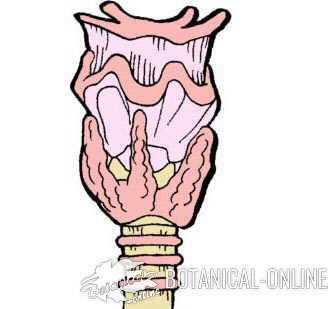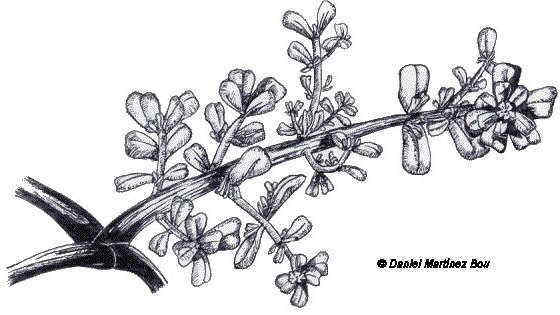Contents
- 1 Importance of minerals for health
- 1.1 What is the function of minerals in the body?
- 1.2 What are the minerals in the human body necessary for?
- 1.3 What are the essential minerals for the human body?
- 1.4 Functions of macroelements
- 1.5 Which are the macroelements?
- 1.6 Functions of microelements or trace elements
- 1.7 Which are the microelements?
- 1.8 Properties of minerals
- 1.9 Daily mineral needs and special needs
- 1.10 When should mineral supplements be taken?
- 1.11 Dangers of mineral overdose
Importance of minerals for health
What is the function of minerals in the body?
Minerals are naturally present in food, and are necessary for the body to function properly.
They are part of the enzymes responsible for detoxifying the organism, for carrying out digestion or for carrying out the metabolism.
They are also performing functions such as transporting oxygen (iron), or constituting part of the bones and teeth (magnesium, calcium, boron, …)
What are the minerals in the human body necessary for?

A balanced diet, rich in vegetables, fruits, cereals and legumes is enough to meet the daily needs of nutrients.
Minerals are necessary for the functioning of the human organism. All of them come from the earth and must be acquired through the plants that are able to incorporate them into their tissues or from the animals that incorporate them when they eat plants or other animals.
In fact minerals are chemical components that are classified in the periodic table of foods in:
- No metals: Carbon, nitrogen, oxygen, boron, fluorine, chlorine, sulfur, phosphorus, selenium, iodine, etc.
- Alkalines: Lithium, sodium, potassium, etc.
- Transition metals: Iron, copper, zinc, nickel, manganese, chromium, vanadium, etc.
What are the essential minerals for the human body?
There are a number of minerals that are considered essential for the human body because, without them, the body does not work well. These are divided into macroelements and microelements.
Generally the daily needs of macroelements are measured in milligrams (mg) and the needs of microelements in micrograms (mcg).
Functions of macroelements
There are minerals that are very abundant in the body. These minerals must be provided in the diet daily, since the body requires them for their most basic functions and in greater quantity. The most important minerals without a doubt for life are carbon, nitrogen and oxygen. These are found in the vast majority of organic structures and therefore their contribution is included within the intake of carbohydrates, proteins and fats, which are the main substrates for obtaining energy and the formation of structures.
Among the minerals that must be acquired from the diet, the most important of all is calcium, which represents 2% of the total weight of a person, so in an adult would be, more or less, between 1.5 and 2 kilos of its total weight.
It is followed by magnesium, which is the second mineral constituent of bones. Sodium and potassium are also vital as they are part of the sodium-potassium pump, which is constantly produced in the cells.
Which are the macroelements?
The macroelements are:
Functions of microelements or trace elements

Drawing of thyroid. Without idodine, it does not work properly
Other minerals are found in very minute quantities, although not for this reason they are superfluous. They are as important as the macroelements, but they are provided in the diet in smaller amounts.
For example, we only have between 20 or 30 mg of iodine and, however, this small amount is absolutely crucial for the proper functioning of the thyroid, a gland located under the neck that secretes tyrosine, a hormone necessary for proper growth, reproduction of the cells or the proper functioning of the nerves. Without iodine, the body develops a disease called hypothyroidism.
In this condition this gland becomes inflamed and produces a bulge in the lower part of the neck called goiter. In addition many anomalies occur (short stature, general inflammation, hair loss, cramps, depression, etc). Nor would it be possible to use iodine without selenium, because it is part of the enzyme that metabolizes thyroid hormone (deiodinase) and therefore allows its action.
Recently, the role of other trace elements such as boron is being discovered, which has been seen to play a key role in the prevention of osteoporosis.
Which are the microelements?
The microelements are:
Properties of minerals
The lack of iodine is only an example of the organic malfunction (physical or psychological) that can produce a lack of some mineral. In general, we can say that minerals exert the following functions:
- Metabolism: They are part of the general metabolism, participating in the production of enzymes and hormones or working in common with other minerals or vitamins: We have already seen the role of iodine in the production of tyrosine. Other times the absorption of minerals is needed from the presence of other components. For example, iron is better absorbed with vitamin C or calcium facilitates the absorption of copper.
- Intervene in the hydroelectric or biochemical balance of the organism. For example, the equilibrium of the liquids that carry out the joint work of potassium, sodium and chloride is well known.
- They are part of the body tissues. They are a fundamental part of the bones to which they determine their structure and rigidity, and they are present in the teeth, muscles, soft tissues, blood and nervous tissue.
Daily mineral needs and special needs
Normally a varied diet, rich in natural plant foods, will provide the recommended daily dose (RDA) of minerals. However, there are a number of situations in which a very strict study of the diet is required to provide sufficient minerals.
For example, it is necessary to monitor the diet during pregnancy, lactation or menopause to prevent the possible deficiency of iron or calcium. No less important is a diet rich in calcium and magnesium in the prevention of diseases such as osteoporosis.
When should mineral supplements be taken?
Mineral supplements are not recommended unless prescribed by a doctor. In general, all nutrients are better assimilated through food when introduced into a balanced diet.
Dangers of mineral overdose
Excess minerals can be toxic or cause disease. This is the case of excess of iodine, which can cause thyroiditis, or more known the iron overdose, which can increase the oxidative damage of the organism.
![]() More information on plants.
More information on plants.








